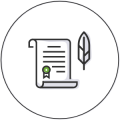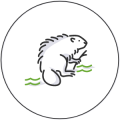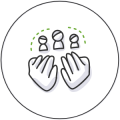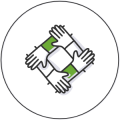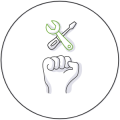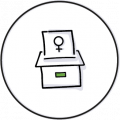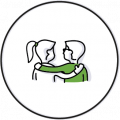BC Social Studies Lesson Plans
Grade K-3
Curriculum
How are decisions made in your community?
- I can contribute during group activities, cooperate with others, and listen respectfully to their ideas about a community issue.
- I can reflect on my work and experiences and tell others something I learned about local government.
- I contribute to group activities that make my classroom, school, community, or natural world a better place.
Grade K-3
How does the Royal Proclamation impact land claims in BC?
- I can explain why Aboriginal land claims in BC are complex and controversial.
- I can consider different perspectives on the Royal Proclamation of 1763.
- I can refute biased opinions with arguments based on the principle of fairness.
Grade 9
How did the Treaty of the Great Peace of Montreal address collective identity and collective rights?
- I can discuss the impact of alliances between Europeans and First Nations.
- I can analyze an historic treaty and compare it to the Charter.
- I can give examples of individual rights and collective rights.
Grade 8
How did the fur trade lead to the development of Canada?
- I can summarize key ideas about how fur trading started and developed in Canada.
- I can analyze how the fur trade created relationships between Indigenous peoples and Europeans.
- I can consider what life would have been like for various participants in the fur trade.
Grade 4
What can we do to make the world a better place?
- I can tell a variety of ways I have changed over time and how my needs have changed.
- I can consider my rights as a Canadian citizen and what responsibilities I have to myself, my family, and others in my community.
- I can think of ways I can help others in my community to make our world better.
Grade K-3
How do we ensure everyone has been included and represented?
- I can connect and engage with others.
- I can solve problems using kindness and empathy.
- I can identify how my actions affect others.
Grade K-3
How can we recognize, appreciate and celebrate our differences?
- I can see different points of view.
- I can explain my thinking about equality and equity.
- I can participate in activities that make my school and community a better place.
Grade K-3
What is the contribution of the labour movement in achieving many social programs, policies, and laws in Canada?
- I can name benefits that we enjoy today because of the labour movement.
- I can analyze the causes and consequences of milestones in workers’ rights.
- I can consider my personal opinions about unions and workers’ rights.
Soc.Just. 12
What have been the turning points for women’s rights in Canada?
- I can identify Canadian women who were trailblazers for women’s rights.
- I can analyze significant turning points in women’s rights in Canada.
- I can explain what needs to be done to remove barriers to gender equality in Canada today.
Soc.Just. 12
How are youth offenders treated differently than adult offenders?
- Students can collaborate effectively with others to deliver and present knowledge about the Youth Criminal Justice Act.
- Students can challenge assumptions and reflect on views on youth offenders from throughout the learning experience.
- Students can demonstrate empathy, personal responsibility, and listening skills during the restorative justice circle activity.
Law 12


